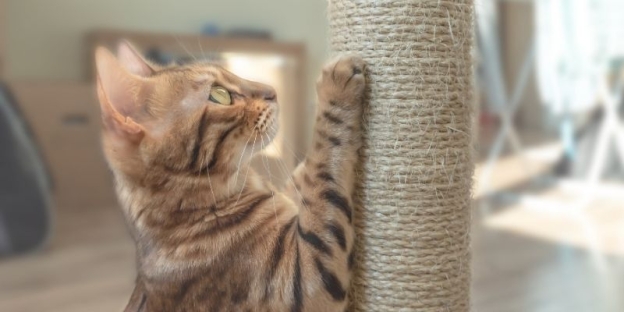Essential Kitten Care Tips for First-Time Owners
It is exciting to have a kitten at home, but are you ready to deal with a kitten in terms of care? Do you have any idea what your little feline requires to be healthy, safe and happy? The number of new pet owners underestimate the need for proper planning that requires for upbringing of a kitten.
The first-time cat owner need to know all about: feeding and grooming; training and healthcare. When you treat the cat the right way, you will bring out a well-adjusted, affectionate and confident cat that will flourish in your home.
Preparing Your Home for a Kitten
Prepare a safe environment before the arrival of your new kitten. Eliminate small items, poisonous plants and loose wires. Prepare a comfortable bed, scratching post, litter box and toys. This preparation will avoid accidents and ensure that your kitten adapts to the new environment as soon as possible.
Choosing the Right Food for Kittens
The nutrition plays the main role in raising kittens. The diets of young cats should contain high levels of proteins that help in growth and development. Commercial kitten diet is specially formulated, though homemade recipes can be added, and these recipes must be vet approved. Always offer fresh water and do not give human food that might be harmful to eat.
Establishing a Feeding Schedule
Kittens grow quickly and require frequent meals. Feed them every three to four hours until the age of six months. Then go to two meals a day. Regular timetable helps not only in digestion, but also in behavioral training.
Litter Training Made Simple
The majority of kittens learn litter box training very fast. Place the box in a convenient and silent place and maintain cleanliness. Use unscented litter because strong odors may discourage the use. The secrets of litter training success lie in patience and consistency.

Regular Vet Visits and Vaccinations
Young cats need proper health care. Arrange first veterinary appointment right after adoption. The vaccinations prevent common diseases in cats, and they are dewormed and treated against fleas. For identification and safety Microchipping is also recommended.
Socialization and Playtime
Early socialization helps kittens to become a nice adult cats. Start introducing them with mild treatment, new sounds and new people gradually. Interactive toys, tunnels and climbing structures will keep them busy and help them gain confidence and minimize destructive behaviours.
Grooming and Hygiene Habits
Although cats groom themselves, some of the kitten care tips requires regular brushing. Weekly grooming of short haired kittens is necessary and long haired breeds should be groomed on a daily basis. Brushing helps to reduce shedding, avoids hairballs, and allows you to have a strong bond. Begin at a young age so that your kitten becomes used to the routine.
Importance of Scratching Posts
Scratching is not bad manners, it is a natural behavior. Put scratching posts or pads to keep your furniture safe. Place them in those places where your kitten spends the most of the time. Give positive reinforcement treats on positive behavior such as using the scratching surface correctly.

Safe Environment for Indoor Kittens
The indoor kittens lead longer and healthier lives, but they require an enriched environment. They stay busy with cat trees, shelves and window perches. If you would like to have outdoor play time, then you should take them to a secure place and ensure that they are protected from accidents.
Training Your Kitten Early
Training isn't just for dogs. Simple instructions, such as come or no can be taught with rewards. Redirecting biting and scratching with toys rather than hands. Early guidance will make your kitten grow into a well-mannered adult cat.
Signs of a Healthy Kitten
A healthy kitten is one that is bright-eyed, has a shiny coat and is playful in nature. Red flags should be noticed like loss of appetite, diarrhea, constantly hiding or coughing. Early intervention at the vet can reduce the risk of getting into serious health conditions.
Building a Bond With Your Kitten
Bonding is time taking process that require patience. Spend quality time together playing, grooming, and sitting. Give your kitten space and allow it to come to you when it wants. Development of trust creates a great and long lasting relationship.
Preparing for Adulthood
The needs of kittens changes as they grow older. Around one year, kitten changes to adult cat food and reevaluate their healthcare routine. Your vet should also discuss with you about spaying or neutering, which helps to avoid unwanted litters and minimize some health risks.
Raise Your Kitten With Care!
First time cat owners might feel getting lost in the process, but with these kitten care tips, the journey will become their best experience. Having the right nutrition, starting the training early are just some of the steps to the future health and behavior of your kitten.
Adopting kittens is not just a responsibility, but a chance to create a life-long friendship with a loyal friend. Your kitten will stay a happy and well-adjusted adult cat if you make your house a safe and loving place to live. It is achieved with patience, consistency and care.










